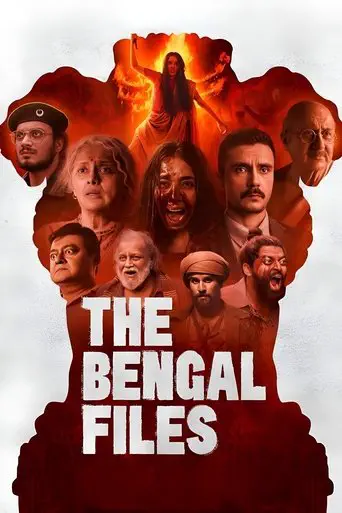
The Bengal Files
Drama History Thriller Hindi
A criminal investigator uncovers a web of corruption during a missing person investigation, while a figure connected to the case reflects on the communal violence which broke out ahead of India's partition.
| Cast: | Darshan Kumaar, Anupam Kher, Saswata Chatterjee, Pallavi Joshi, Saurav Das, Mithun Chakraborty |
|---|---|
| Director: | Vivek Agnihotri |
| Writer: | Vivek Agnihotri, Saurabh M. Pandey |

Guild Reviews
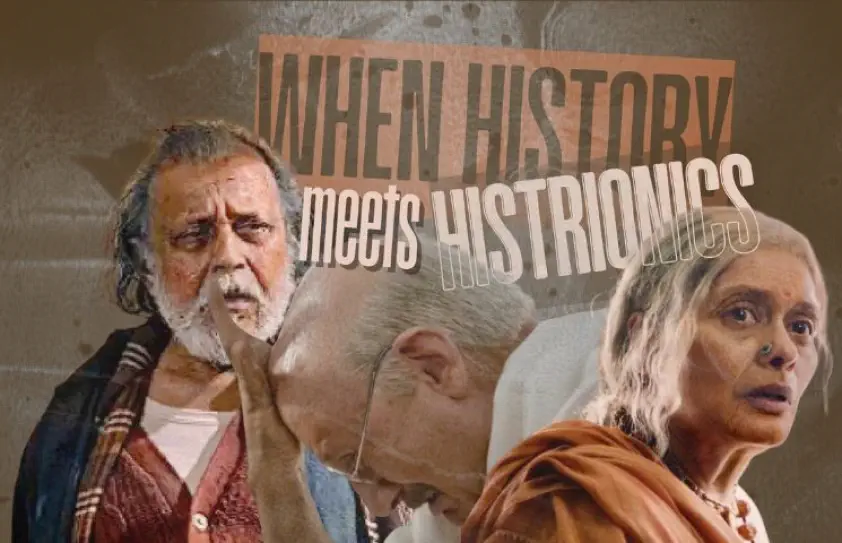
When history meets histrionics

The Bengal Files directed by Vivek Agnihotri continues his polarising Files Trilogy after The Tashkent Files and The Kashmir Files. With a cast featuring Darshan Kumar, Saswata Chatterjee, Pallavi Joshi, Mithun Chakravarthy, and Anupam Kher, this 205-minute political drama revisits the 1946 Great Calcutta Killings and the Noakhali riots. Framed as historical revelation, the film blends propaganda, performative outrage, and distorted memory into a cinematic spectacle. Positioned conveniently before the 2026 Bengal elections, The Bengal Files raises questions about political cinema in India, propaganda-driven storytelling, and the weaponization of Partition-era trauma. Political cinema in India has long mastered the art of selective amnesia—where history is less a chronicle of facts and more a buffet of “patriotic” fiction, seasoned heavily with rage bait. Most of these films claim to “speak truth to power” while actually whispering sweet nothings into the ears of a very specific, very angry demographic. The result? Predictably controversial, conveniently banned (wink wink), and almost always marketed as “the film THEY didn’t want you to see.”
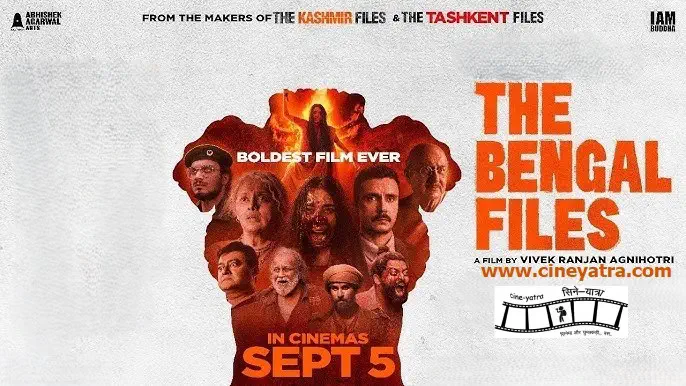
मत देखिए ‘द बंगाल फाइल्स’

‘प्रहार’ में मेजर चव्हाण बने नाना पाटेकर कोर्ट से पूछते हैं-‘देश का मतलब क्या है? सड़कें, इमारतें, खेत-खलिहान, नदियां, पहाड़, बस इतना ही? और लोग, लोग कहां हैं?’ सच तो यह है कि देश की बात करते समय हुकूमतों ने कभी लोगों के बारे में सोचा ही नहीं। विवेक रंजन अग्निहोत्री की यह फिल्म ‘द बंगाल फाइल्स’ उन्हीं लोगों, हम लोगों, ‘वी द पीपल ऑफ भारत’ की बात कहने आई है, सुनाने आई है। पर क्या सचमुच कोई ‘वी द पीपल’ की बात सुनना भी चाहता है? समझना चाहता है? आज के पश्चिम बंगाल के मुर्शिदाबाद में एक दलित लड़की के गायब होने के मामले की तफ्तीश करने के लिए दिल्ली से सी.बी.आई. अफसर शिवा पंडित को भेजा जाता है। शक स्थानीय विधायक सरदार हुसैनी पर है। शिवा पर वहां हमला होता है क्योंकि उस इलाके में पुलिस की नहीं सरदार हुसैनी की चलती है। वही सरदार हुसैनी जो सीमा पार से अवैध लोगों को वहां लाकर बसा रहा है, उन्हें यहां का नागरिक बना कर उस इलाके की डेमोग्राफी बदल रहा है, हर चीज़ को हिन्दू-मुसलमान बना रहा है ताकि उसकी हुकूमत चलती रहे। तफ्तीश के दौरान शिवा को भारती बैनर्जी मिलती है जिसने आज़ादी की लड़ाई लड़ी थी, अगस्त 1946 का बंगाल का वह ‘डायरेक्ट एक्शन डे’ देखा था जिसमें हज़ारों लोग मारे गए थे, नोआखाली के दंगे देखे थे और जो आज भी बात-बात पर बीते दिनों की उन भयानक यादों में खो जाती है। शिवा पंडित पाता है कि हालात आज भी कमोबेश वैसे ही हैं। हुकूमत में बैठे लोग आज भी अपने स्वार्थ के लिए ‘वी द पीपल’ को इस्तेमाल ही कर रहे हैं।
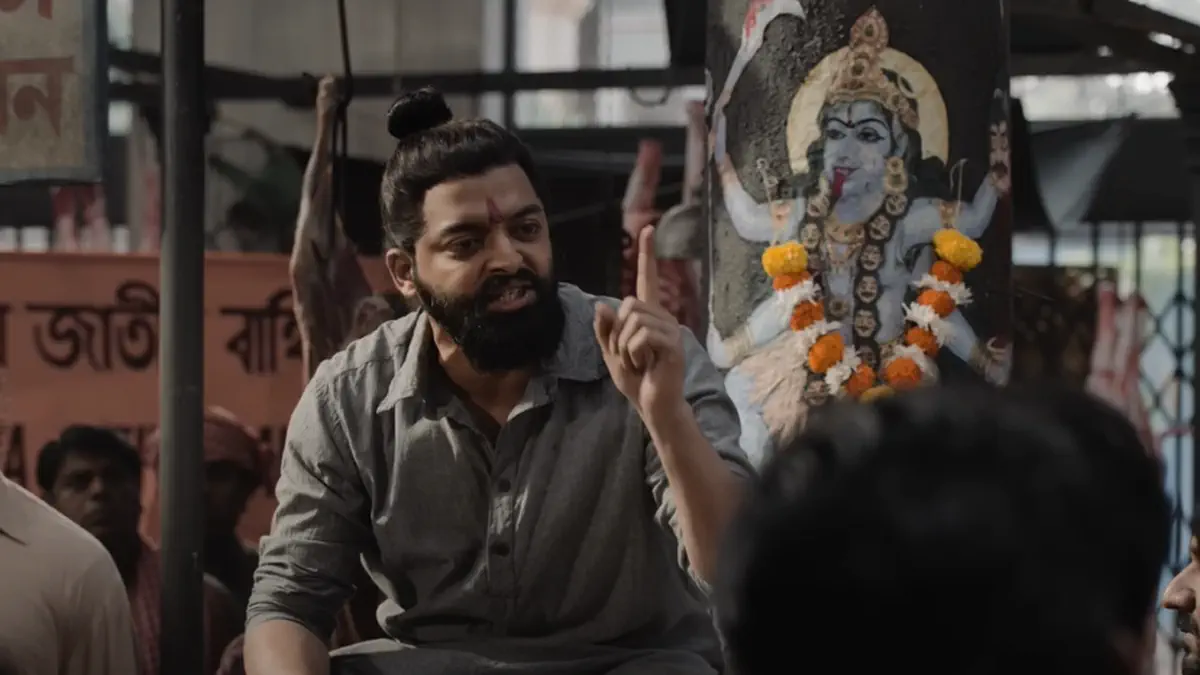
Vivek Agnihotri injects a booster dose of communal poison

During the pandemic, a booster dose of the vaccine became a common term. It was intended to boost the immune system’s response to the virus. This week, Vivek Agnihotri injects a booster dose of cinematic virus that he unleashed with The Kashmir Files lest people develop immunity against communal politics. Once again, blending a discriminating version of the past with a myopic vision of the present, The Bengal Files not only scratches the wounds of the Partition but also punctures them to manipulate emotions. Soaked in blood and hate against one community and religion, the film uses cinema as a tool to divide. Juxtaposing the present State of affairs in West Bengal with the Calcutta riots of August 1946 in the wake of the Muslim League’s call for Direct Action Day, followed by the Noakhali riots, the film says that Partition is an unfinished business, instigating majoritarian fear about demographic change and illegal migration.
When indulgence overpowers intent

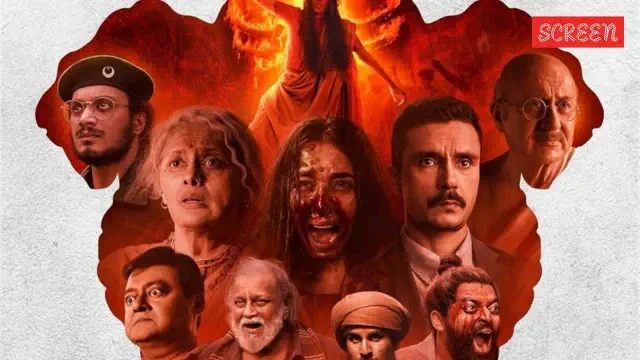
Vivek Agnihotri’s film comes unstuck in its loose, confused stretched-out execution

First things first. For those who go looking for a detailed sketch of Gopal Patha, the so-called ‘Butcher of Bengal’, will be disappointed. The reason for this is evident. For the past several weeks, all we’ve been hearing in the context of Vivek Ranjan Agnihotri’s The Bengal Files is how it thrown a light on a forgotten chapter of our recent history in which Gopal Chandra Mukherjee, a local strongman, saved Calcutta from being ‘annexed by Pakistan’ on Direct Action Day on August 16, 1946. The first part of the statement is accurate. Yes, there are several slices of pre-Partition, pre-Independence events recreated in the three-and-a half-hour film, in which we see Gandhi arrayed on one side and Jinnah on the other, with the latter’s demand of a Muslim Pakistan being put into motion by the reluctantly-departing British.
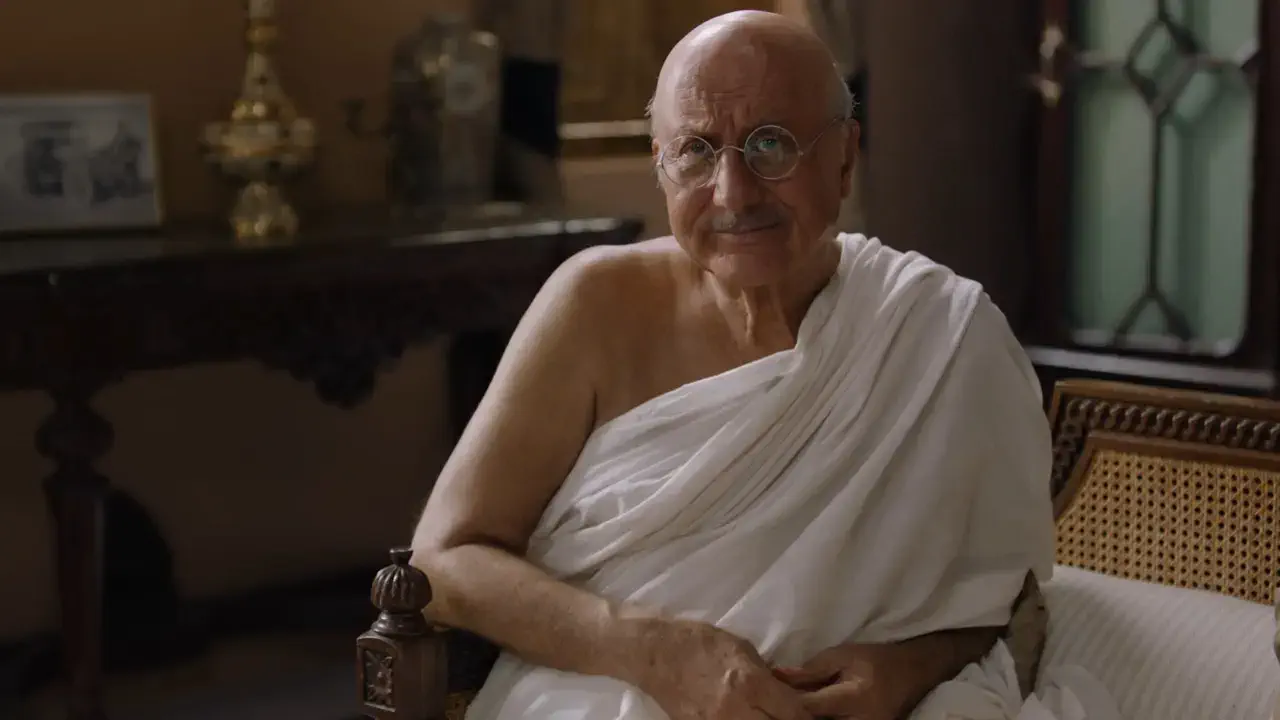
A Shallow And Slanted Polemic

Credit where it’s due: Vivek Ranjan Agnihotri makes the most interactive Hindi films imaginable. One of the discreet pleasures of watching his Files trilogy — Bengal was preceded by Kashmir and Tashkent — in theatres is also listening in on the audience chatter. His films coast on a call-and-response strategy that I find uniquely fascinating. There are pauses built into the narrative for the viewer to gasp and react—in horror, in indignation. Ideologically, these films are crude and convenient monologues; as a piece of communal theatre, though, they’re a dialogue! My morning screening of The Bengal Files at a suburban multiplex in Mumbai was by no means a muted experience. When a hopeful and patriotic man, circa 1946, announces optimistically that Calcutta will be never become a ‘Muslim’ city, an elderly lady three rows from me ad-libbed sarcastically, “Of course it wont”. On Mahatma Gandhi hawking his spiel of non-violence as Hindus are butchered in the streets: “What an a**hole”. And a little earlier, when a Sikh character enters the narrative, this priceless enquiry to the screen: “What is a sardar doing in Bengal?”

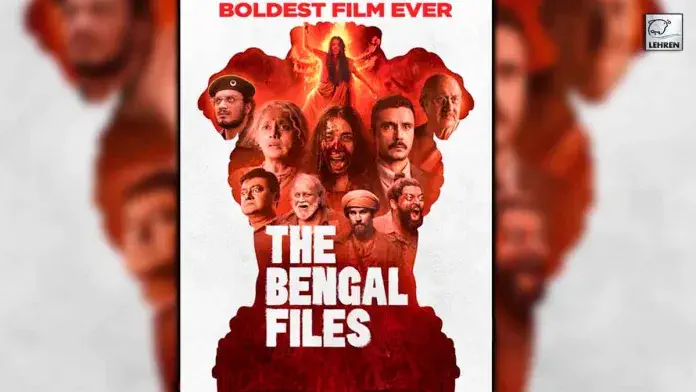
A compelling document

Sequences that stun and performances that force a watch: The humiliation of CBI officer Shiva Pandit (Darshan Kumar) in Husseini House, on the orders of a weak-kneed senior (Puneet Issar). Contrast it with an earlier Zanjeer moment when Shiva crisply tells off Husseini’s goon that he hasn’t been given permission to sit. The dining table cool of criminal Sardar Husseini (Saswata Chatterjee) with elegant wife (Madalsa Sharma) playing gracious hostess, the underlying menace palpable. The goonga pagal (Mithun Chakraborty) as his story seeps out, a piercing moment when he helplessly tells Shiva that he can’t talk. Tongue cut off, castrated, yet the fire burns The public lynching of Gandhian Judge Banerjee (Priyanshu Chatterjee) even as he defines equality and justice while Ghulam (Namashi Chakraborty) kicks on mercilessly. The undying spirit of Chaudhry Kaku (Dibyendu Bhattacharya) in his guillotine moment at Noakhali when Ghulam demands, “Bol, Pakistan zindabad”.
Latest Reviews
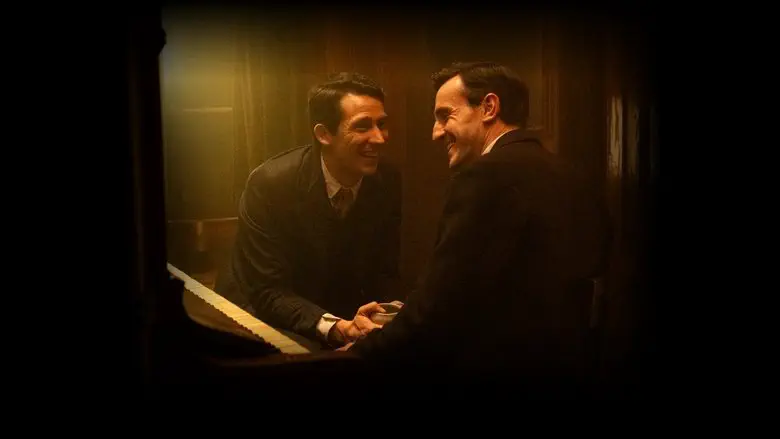
The History of Sound
Drama, Romance, Music (English)
In 1917, two young music students attending the Boston Conservatory bond over a mutual love of… (more)

The Last First: Winter K2
Documentary (English)
The race to grab the last great prize in mountaineering, K2 in winter, left five dead.… (more)
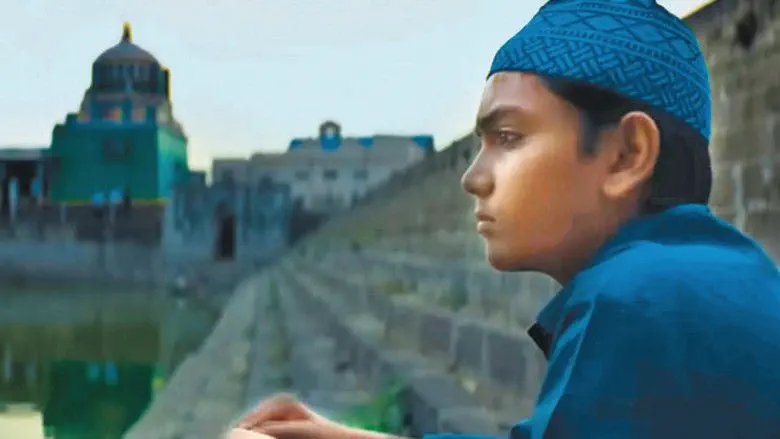
Khalid Ka Shivaji
Drama, History (Marathi)
Khalid, a 5th standard student is teased by his classmates because of his religion after a… (more)
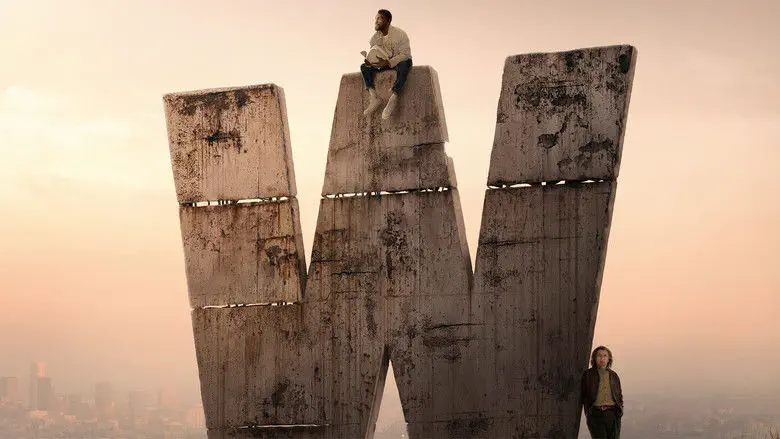
Wonder Man
Comedy, Sci-Fi & Fantasy (English)
Simon and Trevor, two actors at opposite ends of their careers, chase life-changing roles.… (more)